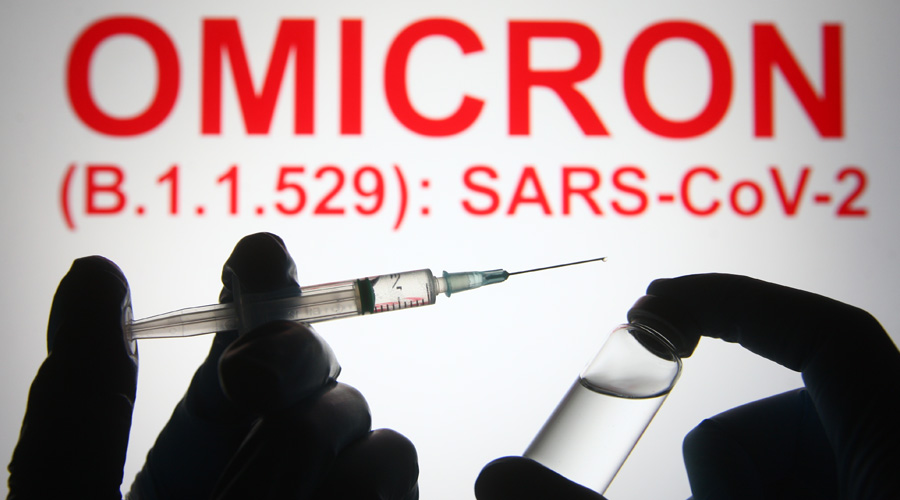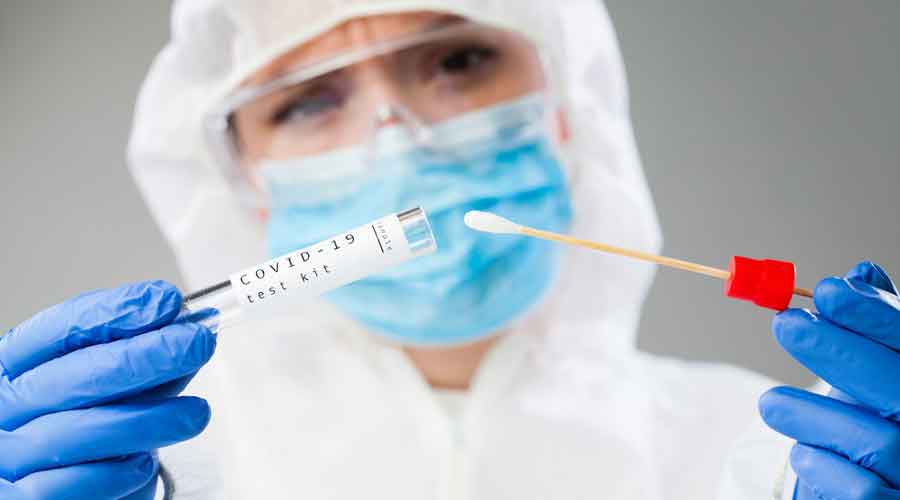Omicron is in community circulation in India and has become the dominant Covid-19 variant in multiple metros, a government research body has said, prompting some health experts to question the continued efforts at sequencing samples from international travellers.
A network of government labs that make up the Indian SARS-CoV-2 Genome Sequencing Consortium (Insacog) had until January 7 documented 3,007 omicron infections, among which 517 were in people with no history of international travel or contact with positive cases.
“Omicron is now in community transmission in India and has become dominant in multiple metros, where new cases have been rising exponentially,” Insacog said in its latest bulletin, released on Saturday at a time cases in Calcutta, Delhi and Mumbai are declining.
(Health experts tracking the epidemic and scientists involved in sequencing Covid-19 samples say both numbers — 517 and 3,007 — are probably misleading and reflect the lag between the bulletin’s content and reality, given the size of the omicron-driven surge. From 3,007 till January 7, the count rose to 4,033 by January 10 and over 9,600 by January 21.)
“Community transmission has been evident over the past four weeks at least,” a public health researcher said.
Early signs of omicron’s community transmission — infections acquired without travel or contact with positive cases — had emerged by mid-December. And the National Centre for Disease Control had by December 22 requested genome sequencing of positive samples from Bangalore, Calcutta, Chennai, Delhi, Mumbai, Pune, Hyderabad and Bhubaneswar to determine whether omicron was already in community circulation.
Some public health experts have questioned the utility of the continued efforts to sequence Covid-19-positive samples from travellers arriving in India when omicron is already in community circulation.
The guidelines for international arrivals released by the Union health ministry on January 20 specify that all positive samples detected among travellers tested on arrival in airports should be sent to Insacog labs for genome sequencing.
The guidelines require all passengers flying in from designated “at risk” countries to submit samples for Covid-19 test on arrival. Health authorities are expected to test at random 2 per cent of passengers arriving from other countries.
“The purpose of sequencing positive samples from international travellers is unclear now. All our sequencing resources should be focused on community surveillance,” said a physician with a government institution.
Another doctor said it would help to know what proportion of Covid-19 infections in large cities might continue to be caused by the delta variant.
“We’ve seen very few deaths in the current wave. Sequencing data could tell us whether the deaths have been caused by omicron or the still circulating delta,” a doctor at a private hospital in Delhi said.
“Samples from patients who have died should be sequenced.”












